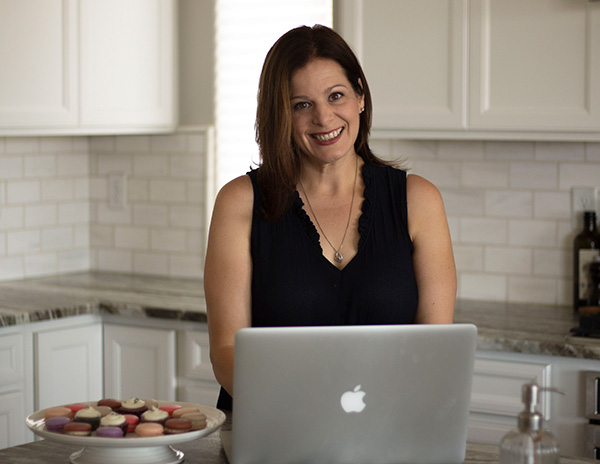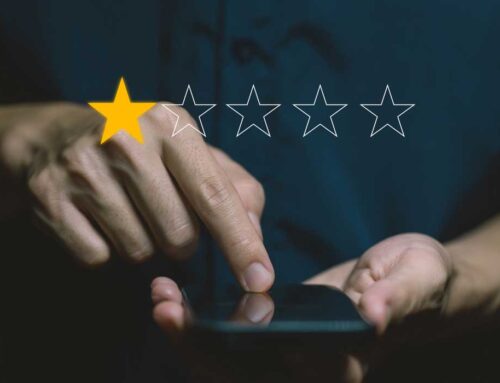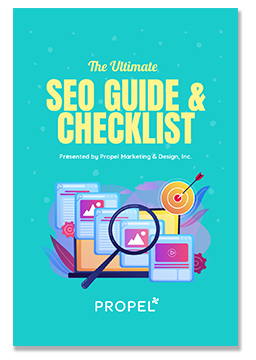Many clinic owners struggle with designing and implementing their long-game SEO (search engine optimization) strategy. And that’s okay, because, hey, you have a business to focus on and SEO can get complicated; especially with so many myths and misconceptions floating around.
So we’d like to take this opportunity to clear up some of those SEO myths and go over the old-school SEO practices, bad SEO applications, and just plain wrong SEO implementation.
We’re thrilled to sit down with Rachel Lindteigen, content marketing expert and founder of Etched Marketing, to go over the ins and outs of SEO, how to avoid the pitfalls, and how to adhere to genuine, current SEO best practices.
Here’s what you can expect to take away from this episode:
Some truly tragic SEO myths that hold businesses back
How a great SEO plan can help your business
Why you can’t rely solely on SEO tools for your SEO campaign
Why a good SEO teacher is the biggest component of your SEO strategy
How paid search works with organic search
How SEO audits will pay off big time
And more
Are you ready to learn how to avoid SEO myths and create a solid SEO plan? Let’s do this!
Listen to the audio version:
Watch the video version:
Show Notes
[00:03:32] Are there industries that SEO simply can’t help? Hard NO! SEO works for any business, person, industry, and organization that does it correctly.
[00:04:49] I have SEO tools on my website, so that’s all I need, right? Nope. You still have work to do, even with the awesome SEO tools out there (yes, use the tools, no, don’t rely on them to implement an SEO strategy).
[00:07:23] My Yoast SEO is giving my page a green light, so it’s perfect, right? No, not necessarily. You have to do your SEO due diligence. And for some pages, don’t even pay any attention to or worry about getting a green light, like your Contact Page.
[00:07:53] What’s a good way to ensure customers can find my location? Give great directions and add a picture of the outside of your place of business on your Contact Page.
[00:08:20] What should chiropractors focus on ranking for? Things like the ailments patients see them for, their solutions, etc. If you have good content throughout your site, the visitor will investigate further and get to your Contact or Booking Page eventually.
[00:09:30] Can anyone create and implement an SEO plan? 100% yes. You need to take the time to learn it or get yourself a great teacher, or hire a knowledgeable and trusted SEO company to help you out. But, you can do it!
[00:12:18] Should I research an SEO expert before hiring them? Big YES! Ask all the questions because anyone can claim to be an SEO expert and charge you a fortune and you still wind up with subpar advice, bad service, and a low-quality, low-producing SEO campaign.
[00:14:39] Is all content good content? Can I outsource overseas or use AI? Not all content is good! Know your target audience and provide content that resonates and attracts them. Getting content overseas or using AI can work, but ensure it speaks to your audience and exemplifies your brand.
[00:16:15] What’s one of the best parts of SEO? When done right, you’re actually telling Google who to show your webpage to. That gives you a lot of control.
[00:17:07] Do ads and SEO work well together? Do they impact each other? Paid ads can be a great contribution to boosting your sales, leads, etc., and help you get keyword traction; however, organic traffic is much better and smarter for long-term visitors, patients, customers, etc.
[00:21:27] Will evergreen content help my SEO? Definitely. Content that is always applicable is a great resource for your visitors and it gives your site great Google leverage.
[00:23:54] Are content audits important? Content audits are an awesome way to quickly put out “new” content. Make sure you review your content every 6-12 months and see if you can update, rejuvenate, and enhance existing content to make it more relevant.
[00:26:51] Is my CTA important? You must provide a call to action so your visitor knows the next step to take. Blog posts should be designed to bring you business so be sure you tell them how to contact you at the end of every one.
[00:29:03] Want to suggest a topic or guest? Please do so! I’m up for a challenge! Suggest a topic for an upcoming episode of the Propel Your Practice Podcast
Selected links and other resources related to this episode
About the Guest
Rachel Lindteigen is the founder of Etched Marketing. She’s a marketing expert, focusing on SEO and content marketing and has over 20 years of experience in the industry. For the past decade, Rachel has been working with some of the biggest e-commerce retailers, helping them strategize their SEO efforts to achieve powerful results.
Rachel is currently teaching SEO to entrepreneurs and small business owners. She is devoted to high-performing content marketing and helps websites succeed through quality SEO techniques, methods, tools, and optimization.

You can learn more about Rachel’s content marketing knowledge at any of the links below:
Darcy: On this episode of Propel Your Practice, we're debunking some common myths and misinformation that’s floating around out there on the internet about SEO (search engine optimization).
Hello, and welcome to the Propel Your Practice Podcast, where we discuss actionable marketing strategies to help clinic owners improve their online presence. I'm your host, Darcy Sullivan from Propel Marketing & Design.
Today, I'm joined by Rachel Lindteigen from Etched Marketing. Rachel is a marketing expert with more than 20 years of experience, her focus is on SEO and content marketing. And for the past decade, she's been working with some of the biggest e-commerce retailers.
I've known Rachel for a while now. Since we both teach SEO and content marketing, we're always chatting about ways to help our audiences simplify their understanding of the steps that are involved in SEO. And while the audiences that our companies target are very different, our strategies and teachings have a similar style.
I thought it would be fun to have her on the show today for us to discuss some of the most common myths and misconceptions there are out there about SEO. SEO is known for misinformation, misunderstandings, and misconceptions. This is in no small part due to Google being somewhat of a black box, in order to try to limit the gaming of search engine result pages.
However, in recent times, Google has taken noticeable steps to become more transparent through increased activity in the SEO community.
All right. Let's dive into today's episode.
So, welcome to the show, Rachel. I'm so excited to have you here today. You and I have had many conversations about all of the myths and misinformation that’s floating around about SEO and content marketing, so I thought it would be fun for us to have a little conversation here on the show about some of the most common myths that we've heard.
Rachel: I am looking forward to this, Darcy. Thank you so much for having me today. It's always fun to, um, correct the mindset when it comes to SEO myths and give people the right information, because, you're right, there is so much misinformation floating out there.
It's frustrating when you know how powerful SEO can be for a business owner and you want to help them.
Darcy: I totally could not agree more with you. And I think that as we go through this, some people will hear one or two and be like, “Well, that's obvious, I know that.” But then they might hear another myth or two and be like, “Wait, what?”
So I think it's worth staying tuned in and hearing some of the most common myths. Do you want to start us off with some of the most common myths that you hear all the time?
Rachel: Absolutely. Probably the one that I hear the most is I tried SEO, it just does not work for my business, it doesn't work for my industry, I can't use SEO.
You guys, there's no reason that SEO won't work for you. It's that you're doing something wrong or you've hired somebody and they didn't know what they were doing. SEO will work for any industry, any product, any city, any market. There is nothing that it can't work for.
You just have to know how to do it.
Darcy: Exactly. And you know, on this show, we talk about SEO and content marketing a lot. And just, if you're brand new to this, when we're talking about SEO, we're talking about search engine optimization. Those are the organic positions on Google and those other search engines.
I have to agree with you. There are a lot of people that have, unfortunately, heard false information before, and were then led by an organization that didn't necessarily have their best interests at heart. And they've had bad experiences either trying to do SEO on their own or hiring somebody else to do it for them, which is- it's a shame.
I think one of the other most common misconceptions that I hear from people that are either just getting started doing SEO, or they had somebody set their website up for them. Maybe it was a friend of a friend or a company that set the website up for them and inserted tools. Maybe it was that they added Yoast SEO, which is a WordPress plugin, or they set up Google Analytics for them to track their data; and they feel as though using a tool like that means that they're “doing SEO.” But just having a tool in place without using it or the information that it provides isn't really doing SEO.
Have you seen that to be a common case as well?
[Rachel: Oh, very much so, especially those who are using Yoast and they're getting their green light. Yoast doesn't have any way of knowing if you've chosen the right keyword. Yoast only checks to see if you’ve used this keyword before, and are using it properly in your title tag and your meta description, and do you have content on the page that ties to it? There's so much more to it. Yoast can't determine your SEO strategy.
And Google Analytics, if you understand Google Analytics, you can determine whether your customer likes the content you're creating. Are they engaging with it? What should you write more of? And what should you write less of?
But just having Google Analytics on your website doesn't tell you anything until you really understand the data in there.
And then my favorite that I've been hearing recently is about Search Console and well, “I know everything I need to know because I have keywords in Search Console.”
There's some keyword data in there, but it's more directional. You guys, it's not the definitive keyword data that we had back when it was actually in Google Analytics, where they told us exactly what keyword drove everything. Man, Darcy, do you remember those days? They were amazing. You could go to the Patty, what your clients made from one keyword.
Oh, the good old days. I miss that so much.
Darcy: I miss that too. And I want to go back to Yoast for a second because I always give the example of the Contact Page. And if you use contact as your keyword on your Contact Page, it might go green, but literally, no one is going to Google typing in contact and expecting your website to show.
Rachel: Exactly. I actually tell my students and my clients, they don't even need to worry about Yoast on pages like that because nobody's searching for your Contact Page. Don't worry if you have a green light on there or not, because it's useless. So, I don't even bother with the Yoast green lights on certain pages.
Like if you're not going to have at least 300 words on a page– and a Contact Page does not need 300 words, I'm sorry, but it doesn't, it's not a recipe blog.
Darcy: It's not, it's not, but I do suggest to people, like, if your location is hard to find or you want to give specific directions like, you know, you get off at this train stop and you go here, like that kind of stuff, have a fabulous picture of the outside of your building, so people know where they're going. Fabulous.
But yeah, you don't need to try to rank for the word “contact” on your Contact Page. I mean, my goodness…
Rachel: Rank for things that are going to bring them in, that are going to have them interested. Rank, especially with your chiropractors, rank for the ailments that people are suffering with or for “chiropractor in your area”, they're going to automatically go to your Contact Page, people.
If they like the content on your website, you don't need to rank your contact page. They're going to go to it.
Darcy: Yeah, absolutely. Now, do you find, like, I find that some people really think either SEO is hard or that they can't do it on their own, which is why, you know, we put together the resources to help them.
You put together resources to help your audience. Don't you think with the right directive, people can get there, they just need the right guidance?
Rachel: I absolutely agree. I hear clients and students tell me all the time that SEO is so hard, “I can't figure this out on my own. I don't even want to try. I haven't started because I'm already overwhelmed. I had to Google what SEO meant.”
SEO is not hard if you have the right teacher. I think the reason that people feel it's hard is because so many within our industry don't know how to talk to business owners and other marketers and people. They're really only comfortable talking to other very technical people.
And some of the technical SEO guys are really technical. I spent five years translating as CEO to a smart marketing executive at the agency. And so it's really about having somebody who understands how to explain it in a way that makes sense to people. But don't let one experience or even two experiences make you feel like you can't learn this.
You can, it's much easier than you think.
Darcy: I agree with you. I've seen instances where companies outsourced their marketing to an SEO company and the SEO company “did things for them every single month.” And when I talked to them, I'm like, “Did you ask them to explain to you what it is they're actually doing?”
Like, pushing buttons behind the scenes isn't what's going to get you to the top of Google these days. I think you and I could both go on and on about stories from 10, 15 years ago, about what behind the scenes, as we used to call it, black hat SEO, [how it] used to work. But, nowadays, it's really, truly as simple as identifying your target audience in ways that you can connect and provide valuable resources to that target audience.
And, you know, there's definitely a little tech to it, but it's not what it used to be back in the day at all. And I think if you're talking to somebody who is willing to “do SEO” for you, you need to feel comfortable with their description of what they're going to do.
And it needs to make sense on the front end and backend of your website.
Rachel: Absolutely. And I've had so many people who've come in as clients who had somebody do their SEO– I had this happen last week on a discovery call– she had somebody do her SEO for her recently. It doesn't even follow best practices.
Darcy: Yeah.
Rachel: I mean, she's got it there. She just did it. But her meta descriptions are twice the length that they're supposed to be. Her title tags are not, there's no call to action. There's nothing to entice you to click on it. Her keyword targeting is so off. She's not going to rank for the keywords that she's going after, because she's not authoritative enough in that market.
Like, from a competitive standpoint, she's got the wrong keywords and it's so unfortunate to see her investing money. And that's what's so frustrating. There's nothing within our industry… anybody can claim that they're an SEO expert. There's no way for people to really, truly verify unless they start doing some research.
Has this person worked as a professional SEO? How many years have they been in the industry? You know, it's hard to know what questions to ask. The two-year experts or the people who did it on their website and had results, but they don't know why they had results. And that's where I think we get so many people who hire someone, or like you said, a friend of a friend of a friend who does it and it doesn't work.
And that's why it doesn't work so many times
Darcy: I've seen where they'll just do tons and tons of short, little itty-bitty pages that have, like, no content on them because they're using strategies that worked maybe 15 years ago. That, or, I mean, I've just… you name it…
I think between the both of us, we've probably seen some of these very sad mistakes or in the instance, you know…
We have a lot of chiropractors, physiotherapists, physical therapists, acupuncturists listening, and you have to be careful if somebody is developing content for you, it has to be in direct alignment with the values and the technical aspect behind the services that you provide.
So having somebody or even, I think you and I talked about this before I hit record, but, like some of those AI resources that are out there now where people think that they can just have an AI source turn up some content for them, or that they can hire somebody overseas or on Fiverr to write content for their website that's going to help them rank. And then they get it, or they don't even realize that a company's uploaded it for them. They see it and they're like, wait a minute, this isn't in alignment with our brand or this specific service or condition or anything like that.
Rachel: What's even worse is when they don't realize how bad the content is.
I've had that happen where they're like, “Yeah, we've got content. We did this. We had a VA in the Philippines write everything for us.” Awful, like, from a readability standpoint. Yeah, it kinda sorta makes sense, but there's no value to your customer, and the way that Google works today, all of these things that worked 10, 15 years ago, they don't work today.
The way Google works today is Google wants to give a really good answer to their customer. What you have to remember when you're doing SEO, you're helping Google help you. So the customer is searching (that's Google's customer, not yours) and Google wants them to come back because they're not the only search engine.
Google wants them to come back and the way they get them to come back is by giving them the best search results. So Google wants you to have really good content on your website that is super helpful to your client, or your potential customer, that answers their questions and provides value.
If you have super short content or you have content that really doesn't tell anything, or you don't answer any questions, they're not going to rank you high because it's not a value to that customer that currently belongs to Google- that you want to belong to you.
Darcy: We've mentioned keywords, but I know in a lot of the reviews that I do with, with clients, potential clients, people that are looking or interested in joining one of our programs, they just assume that some of their top targeted keyword phrases are already on their website and throughout their website, or they'll point to a page and there'll be like, see, it's mentioned there one time. And yeah, that, that, that's not, unfortunately, that's not going to get you to the top of Google because if that did it everybody would be sitting at the top of Google.
Rachel: You have to help Google understand what words you want to rank for. That's what SEO is.
SEO is your opportunity to tell Google, hey, I'd like to rank for these kinds of things. This is what my website is about. So when you reframe it and you look at it in that, that mindset, it's a whole lot more exciting. It's like, “Oh, I get to tell Google who to show my website to.” versus, “Oh, I have to do SEO.”
No. I get to tell Google who to show my website to and they will show it to people. And then those leads can become my customers. Huge mindset shift. It's your opportunity to tell Google who to show your website to.
Darcy: Yeah. I love that. I love the way that's worded. Now, one thing we haven't talked about, which I think can be kind of confusing to people is the role that ads play in SEO or reverse.
Rachel: I have a lot of people ask about this too. So your ads and your SEO are separate. They don't, your ads don't impact your keyword rating. You don't get a higher ranking just because you're running ads.
Darcy: Right.
Rachel: The other thing that we want to think about, you can use them together.
And we did this a lot at the agency, especially working with e-com. If we had a keyword we couldn't rank for yet in organic, then our paid search team would be working on that keyword from a paid standpoint. So, an ad standpoint. So as you're working on building your rankings up, sometimes it is really helpful to start out with paid ads, but in, Darcy, we'll talk about this in a minute, but paid ad traffic is not necessarily going to convert the same way that your organic traffic will.
Plus your click-through rates are nowhere near the same, your organic traffic click-through rates are so much higher. It's worth doing the organic.
Darcy: Yeah. And I, well, I give the example, remember when Facebook went down, right? Like your ads get turned off, your leads get turned off. You don't want that.
And in the long run, organic is going to give you better, higher-quality leads. And you know, like I said, if Facebook goes down tomorrow, if ads get shut off, you're not going to be able to reach your target audience, and the quality of people that click-through ads, they're not as invested. That's not probably the best word.
Rachel: But they’re not necessarily looking for the exact thing the way they are when they're searching. When they're searching organic, they're looking for a specific item or specific information, and they're more likely to trust the organic listings than the ads as well, based on all the research we've seen.
And then your click-through rate is like 10 X if you're positioned one. You have on average 37% click-through, whereas 3% is an excellent click-through rate for Google ads. And 1% is good for Facebook because it's a different form of marketing to someone who's looking for what you're selling versus interruption marketing, which is what Facebook ads are.
They're looking to be entertained and you're trying to grab their attention when they're trying to be entertained versus they're specifically looking for the information that you have the answer to. There's a huge difference.
Darcy: There's a huge difference. And I do think some people just assume paid ads are easier, but they're not.
There's a learning curve with putting them together and the cost per click that you're spending on them. And that, that is one reason that Google Analytics and tracking information is so important. Your, when people say my leads come from Google, okay. Are they coming from Google organic? Or are they coming from Google paid?
Are they coming from your Google Business Profile listing? Like, what do you, what do you mean they come from Google? So that's yet another reason why you've got to track everything.
Rachel: Well, and you have to understand what those numbers mean so that you can see. The other one that I hear all the time is that SEO takes forever.
Longer than ads. Ads you can turn on and you can start to see results immediately if you have your targeting right. If your Facebook account doesn't get hijacked, if you don't get shut down, if you don't have your ad rejected for whatever stupid reason that has nothing to do with your ad, all the things that we deal with when we run ads, I hate Facebook ads, and yet I still try to use them once in a while, but SEO does take time.
The best description I've heard is to think of it as your retirement accounts. It's a long-term investment account. You're putting a little bit in, a little bit in, a little bit in, and then all of a sudden, one day you look at that account and you're like, “Wow, that got really big.” Well, you're writing content and you're starting to rank, you’re writing content and you're starting to rank, you’re writing content and you're starting to rank.
Darcy: Yes. I agree with you. So I think over time, just like you said, you're adding content, you're beginning to rank and you've got also the other aspect of, if you don't do it and your competition does, they're going to rank. Yeah.
Rachel: The other thing to remember is that SEO because it's a long game, if you have evergreen content, meaning content that is always appropriate, questions you always get asked, always applicable to your customer- those posts can run and stay at the top of Google for years. I get more traffic from a post that I wrote four years ago than a post that I wrote two months ago.
And that's just the way that it is. So, create really great content, provide value to your customer and it can work forever.
Darcy: I completely agree with you. We helped one chiropractor who had a specific service, a niche that they were in, that they really wanted to be known for. And we wrote, and it wasn't even a blog post, it was a page, a page for them that we wrote– I think now it was probably two years ago– it's still sitting position zero.
So, above positions and the rich snippets. And it's outranking Mayo Clinic, it's outranking web MD. They're getting ranked not only in their area but so many other surrounding areas specifically for what their target audience is searching for.
So it does take time sometimes, but you know, we've seen other times where we go in, we fix a technical glitch, which can happen and indexing issue and boom, all of the sudden the client is getting more leads in.
Um, when we go in and do foundational work, the client will be like, “I don't know what you guys did, but we just got more leads in the past week than we've gotten in the past so many months.”
Like, you know, there's the big boulder, I like to think of it like there's the big boulders and there's the small rocks and you gotta, yeah, you got to do the shifting, you got to do the moving, but once you get the foundation in order, you can see big movements in a shorter period of time. But it, it's long lasting effects. Just like you said, the quality content.
And it doesn't mean that you have to write a blog post and then you never ever touch it again, it might mean in six months from now that you go in, you jump in, you push it up, you add more images, you update the information and voila it’s released out into the wild world of the internet again.
Rachel: And you should do that. You absolutely should audit your content every six to 12 months. You don't want to make changes too frequently, but you should audit your content. You should look and see where are my leads coming from? What posts are performing the best? Do I have an outdated call to action on one of them? Because sometimes those posts that are three or four years old, maybe you have a different opt-in?
Maybe you do need to go back and make sure, you need to do an audit and go back and review and make sure that you are sending people, if Google is sending people to that page, it's up to you to make sure it's converting right. That's your job as the business owner, to make sure that that page converts and you have a great opt-in on there, have a click-through to your Contact Page.
Don't, like we talked about, don't try to rank your Contact Page, but put your contact page as a link there, if it's something that could send them to book an appointment.
Darcy: Yeah. And I always like to say, you know, book now, book an appointment- that is the direction that you want somebody to take. You don't necessarily need a Contact Page, but you need something.
That's very Captain Obvious- click here to book an appointment. Like, if somebody is coming, they're searching for you, they're searching for your services, your products. They're basically saying, “Here's my money, how do I give it to you?” You've got to give them a clear way to make it as easy as possible for them to either book an appointment with you or buy your products or services.
Rachel: I do this, so I have a Montessori preschool that I work with. And in our blog posts, we always wrap up with: If this sounds interesting to you and you think this could be a good fit for your family, contact us today to schedule a tour.
You have to tell them what that next step is.
So don't just say “contact us,” say, “contact us to schedule a tour.” Like Darcy said, “Book Now.” “Contact us to schedule, you're only steps away from relief.”
Like you, as the chiropractor, the owner, the therapist, you know, that you can help them, help them understand that you can help them. People need us to guide them through the process.
his is more marketing than SEO, but it's the bottom line. We have to help people with those little tiny conversions and help them understand what to do next. Because if you don't put it on there, they may go back to Google. They may be like, Ookay, well that was helpful. That was good information. But what do I do with it now? Can I find someone in my area who offers this?”
When you offer it, but you didn't say that on the post. Always tell them what you can do.
Darcy: I love that you said that because we have, an episode coming up where we walk, we're gonna walk through some of the best practices for blogging. And one of them is that conclusion that everybody forgets.
They're just like, here's what my blog post is about. Abrupt end. Where it's like, no, no, no, no. Tell them what this means and what next steps they should take. So I love that you just said that.
Rachel: The only way you make money from blogging is to include a conversion or a call to action.
In the end, blog posts are to generate leads and make your clinic or your practice more money. You have to tell them what to do. Don't ever miss that step.
Darcy: I love that. Well, hey, we're going to wrap things up here soon. Do you have any last helpful tips for anybody or do you want to let them know how they can get ahold of you?
If they're interested in gaining more information?
Rachel: Yeah, absolutely. One tip is to really, really truly know your ideal customer, know what they need, what their questions are, their pain points. And then, outstanding content that helps them, that answers their questions and optimize it for Google.
Create for your customer. Optimize for Google. It's not the same thing you need to do both. You can find me at EtchedMarketing.com. We’re on social: on Facebook, Insta, YouTube, um, at Etched Marketing Academy.
I work one-on-one with clients and I also do SEO training though, not for chiropractors and owners. I focus more on realtors, course creators, um, e-commerce, and small business owners in the online space.
Darcy: This was so much fun. Thanks for being on today, Rachel.
Rachel: Thank you for having me, Darcy. It was great to sit and chat about SEO myths.
Darcy: Absolutely.
Hey, before we head out, I want to invite you to join in on a free masterclass I put together on the Five SEO Secrets to Owning the First Page of Google Without Buying Ads.
You can find a link to sign up for this free masterclass in the Show Notes of this episode or by visiting PropelYourCompany.com/learn.
During this workshop, we do a deep dive into strategies to help you improve your online presence, including your Google Business Profile, that's what used to be called the Google My Business listing, and what controls the Google Maps section. Along with how voice SEO plays a big role in today's search and where you should be focusing your efforts online for the biggest impact.
All right. Well, that's it for today. Again, you can join the masterclass by visiting PropelYourCompany.com/learn. And if you have a topic that you would like to hear on an upcoming episode of Propel Your Practice, please send it in by visiting PropelYourCompany.com/podcast-topics or looking for the link in the Show Notes.
Thanks so much for your time. I'll talk to you soon.
Darcy’s SEO strategies are easy to implement and effective. She’s the #1 SEO expert I refer to whenever I need help with my rankings.
- Nicholas Scalice, Growth Marketing Podcast // Growth Marketer
Get our next podcast episode delivered directly to your inbox:
We'll email you when we release new episodes.
Sponsors
This episode of the Propel Your Practice Podcast is brought to you by Propel Marketing & Design. Propel Marketing & Design helps Chiropractors, Acupuncturists, Physical Therapists, Wellness Practitioners, and other clinic owners improve their website rankings.
Do you have a suggestion for an upcoming topic or guest?
We love a good suggestion and we’re happy to take yours! Tell us about a topic you want to hear more about or a guest you think would make an impact here and we’ll take care of the rest.
Interested in sponsoring a Propel Your Practice Podcast episode?
If your organization would be a good fit for our target audience, we’d love to work with you. Hit the link below and let’s talk.










![How to Write a Professional Chiropractic Bio [Template Included]](https://propelyourcompany.com/wp-content/uploads/write-a-bio-500x383.jpg)

